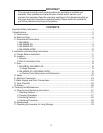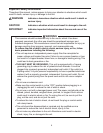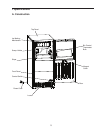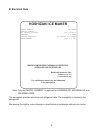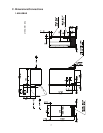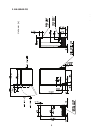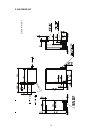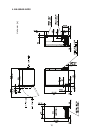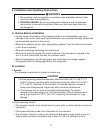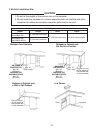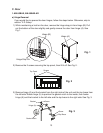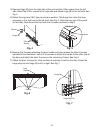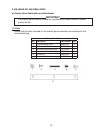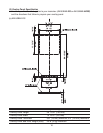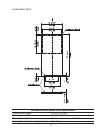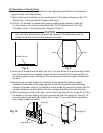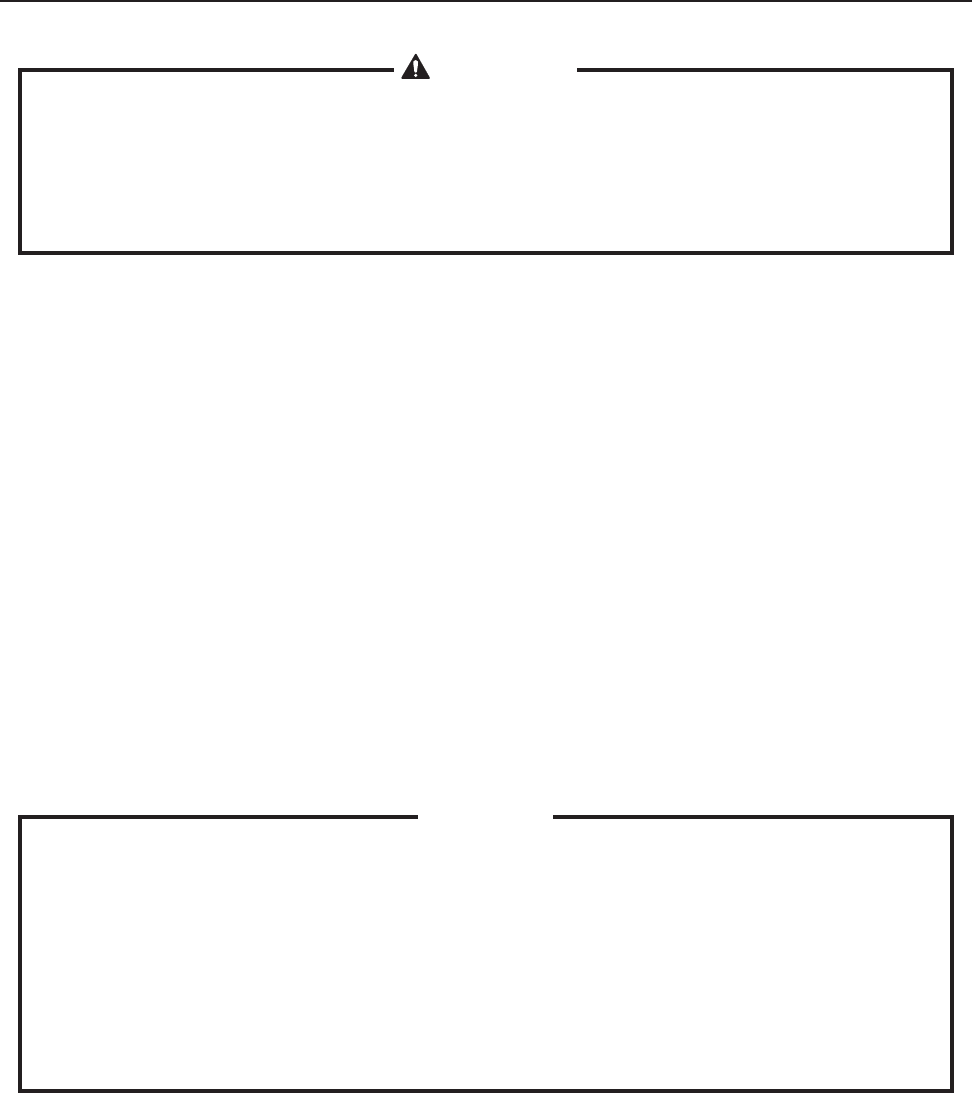
11
II. Installation and Operating Instructions
WARNING
1. This icemaker must be installed in accordance with applicable national, state,
and local codes and regulations.
2. CHOKING HAZARD: Ensure all components, fasteners, and thumbscrews
are securely in place after installation. Make sure that none have fallen into
the storage bin.
A. Checks Before Installation
•Visuallyinspecttheexterioroftheshippingcontainerandimmediatelyreportany
damage to the carrier. Upon opening the container, any concealed damage should also
be immediately reported to the carrier.
•Removetheshippingcarton,tape,andpackingmaterial.Ifanyareleftintheicemaker,
it will not work properly.
•Removethepackagecontainingtheaccessories.
•Removetheprotectiveplasticlmfromthepanels.Iftheicemakerisexposedtothe
sun or to heat, remove the lm after the icemaker cools.
•Seethenameplateontheleftsidepanel,andcheckthatyourvoltagesupplied
corresponds with the voltage specied on the nameplate.
B. Location
1. General
This icemaker is approved for indoor or outdoor use.
CAUTION
1. Normal operating ambient temperature should be within 45°F to 100°F (7°C
to 38°C); Normal operating water temperature should be within 45°F to 95°F
(7°C to 35°C). Operation of the icemaker, for extended periods, outside of
these normal temperature ranges may affect icemaker performance.
2. This icemaker will not work at sub-freezing temperatures. To prevent
damage to the water supply line, drain the icemaker if the air temperature is
goingtogobelow32°F(0°C).See"III.C.PreparingtheIcemakerforLong
Storage."
For best operating results:
•Theicemakershouldnotbelocatednexttoovens,grills,orotherhighheatproducing
equipment.
•Thelocationshouldprovidearmfoundationfortheicemaker.
•Thisicemakerrequiresnosideortopclearance.Butallowenoughspaceatrearfor
watersupplyanddrainconnectionsandatleast15"(38cm)clearanceatfront.



